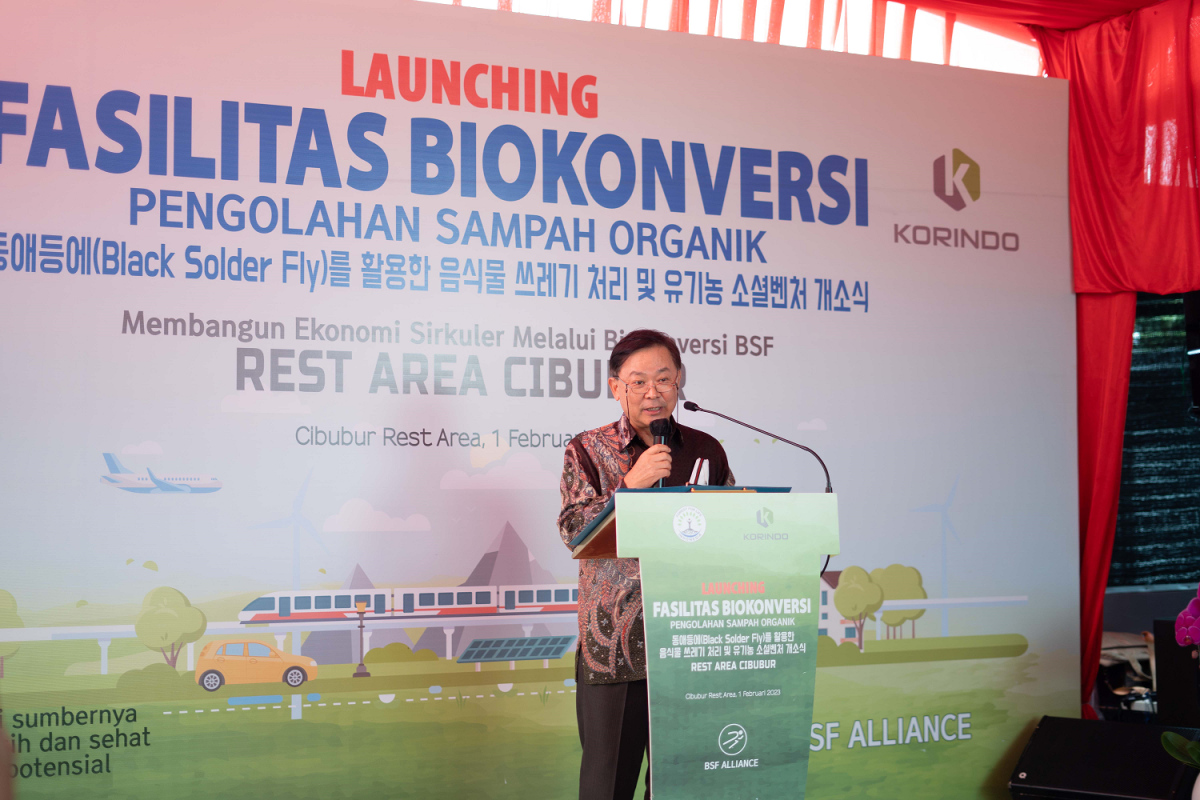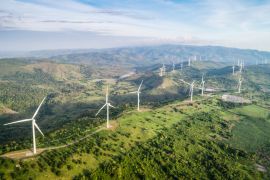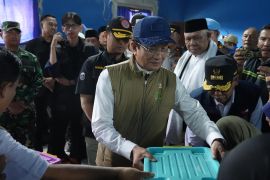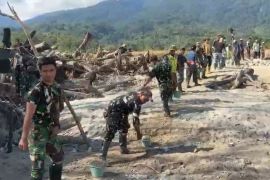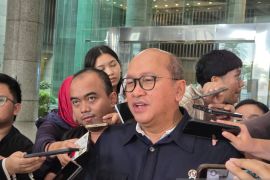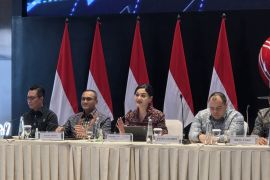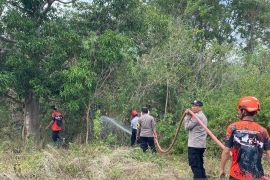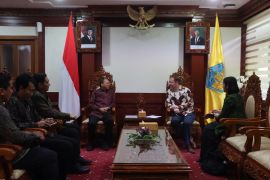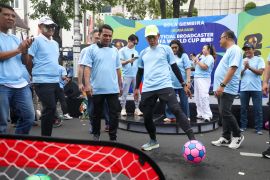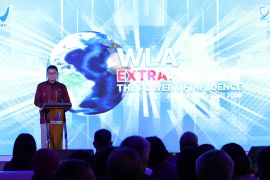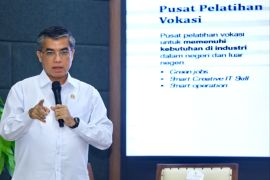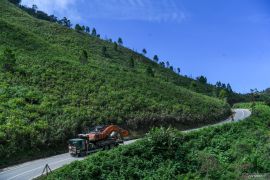Such a center is designed to tackle daily waste issues in the Rest Area, by temporarily storing and preparing organic waste for recycling.
Public Works and Housing Ministry of Indonesia, Korindo Foundation, and Forest For Life Indonesia Foundation (FFLI) launched the plant on Wednesday (2/1). Korindo Foundation’s General Secretary Mr. Seo Jeongsik, General Secretary of Public Works and Housing Ministry Ir. Muhammad Zaenal Fatah, Director General of Human Settlements Ir. Diana Kusumastuti, MEng, and Counsellor of South Korean Embassy for Indonesia Mr. Lee Joonsan were present at the event.
With all the stakeholders attending, this ceremony became a vital moment to introduce the black soldier fly-based bioconversion technology, which is expected to be adopted in more places, like other rest stops or other public establishments. This technology is hoped to resolve waste management challenges.
“It is rightly so that rest areas have these facilities. Keeping the area clean is part of the operators’ responsibilities. With this, I ask everyone to stop throwing their trash problems over the fence. If you can solve them here, why bringing them to the landfills,” said Public Works and Housing Minister Basuki Hadimuljono in a separate statement.
According to him, the ministry had also shown its appreciation to Korindo Group and Forest For Life Indonesia for initiating the project. Hadimuljono hoped that more and more companies and agencies follow in Korindo Group and FFLI’s footsteps to build innovative spaces in rest stops and communal areas in general.
Made under the partnership of Korindo Foundation and FFLI Foundation, the plant can handle up to 1 ton of living waste per day. Cibubur Rest Area was picked as the project location, given its position as a waste source that needs urgent solutions. This conversion technique is also applicable to different types of waste sources like traditional markets, industrial zones, offices, and residential areas.
“Other than being environmentally beneficial, this facility can offer new economic opportunities. Profits gained from this project will be channeled into community and environmental empowerment programs,” explained Robert Seung, the chairman of Korindo Foundation.
Robert wished the plant would reach the same degree of success as its predecessor, a similar plant with a 4 tons per day waste processing capacity in Lombok, West Nusa Tenggara. This particular project was funded by the Foundation in 2017, in which FFLI teamed up with the local government to monitor its operation until today. This makes it no surprise that the plant has turned into one of Lombok’s waste disposal prototypes.
“These facilities won’t be able to run properly without our collaboration with FFLI and support from the local government. That being the case, from the depths of our hearts, we want to thank all parties for the great teamwork,” Robert said.
He went on to say that through the Foundation, businesses under Korindo Group had truly participated in efforts to bring back the balance in Indonesia’s natural environment.
“Korindo Foundation has directly taken part in environmental preservation projects like Pakansari and Pondok Rajeg city forests and conservation activities in Papua. Through these breakthroughs, we strive to contribute to the local community and the environment."
On the other hand, Head of FFLI Dr. Hadi Pasaribu said the plant did not only create a clean, healthy environment to be in and work out waste issues right at its source; it also provided protein, fat, and chitin, restored soil fertility, and played a role in mitigating climate change effects.
“The more bioconversion plants we build, the bigger the benefits will be for our environment,” he said.
Black soldier flies enthusiast, Prof. Agus Pakpahan, shared a similar sentiment. He pushed for additional bioconversion plants to be built, so waste wouldn’t have to be brought into the landfill. This approach established a clean and healthy environment, provided benefits for nature, and created a circular economy.
Pakpahan revealed that around 60%-70% of landfill waste was organic, meaning that settling the issue upstream would simplify the entire waste management process. In his statement, he also touched on local people’s waste dumping behavior, saying, “Each and every one of us should be able to take care of our own waste."
Bioconversion with black soldier flies is a biological approach to manmade environmental problems that bases itself on the notion that nature is created in harmony and balance. The technology offers a way out of excessive living waste.
It is relatively safe for the surrounding area and community. Of all 800 fly species on earth, the black soldier fly stands out for its non-pathogenic nature and the absence of disease agents.
In this method, black soldier fly larvae decomposes organic waste generated from human activities. After that, the insects can be used as fish or chicken feed for their high amino acids and protein content. In the end, this process forms a circular economy that creates new economic prospects.
Reporter: PR Wire
Editor: PR Wire
Copyright © ANTARA 2023
